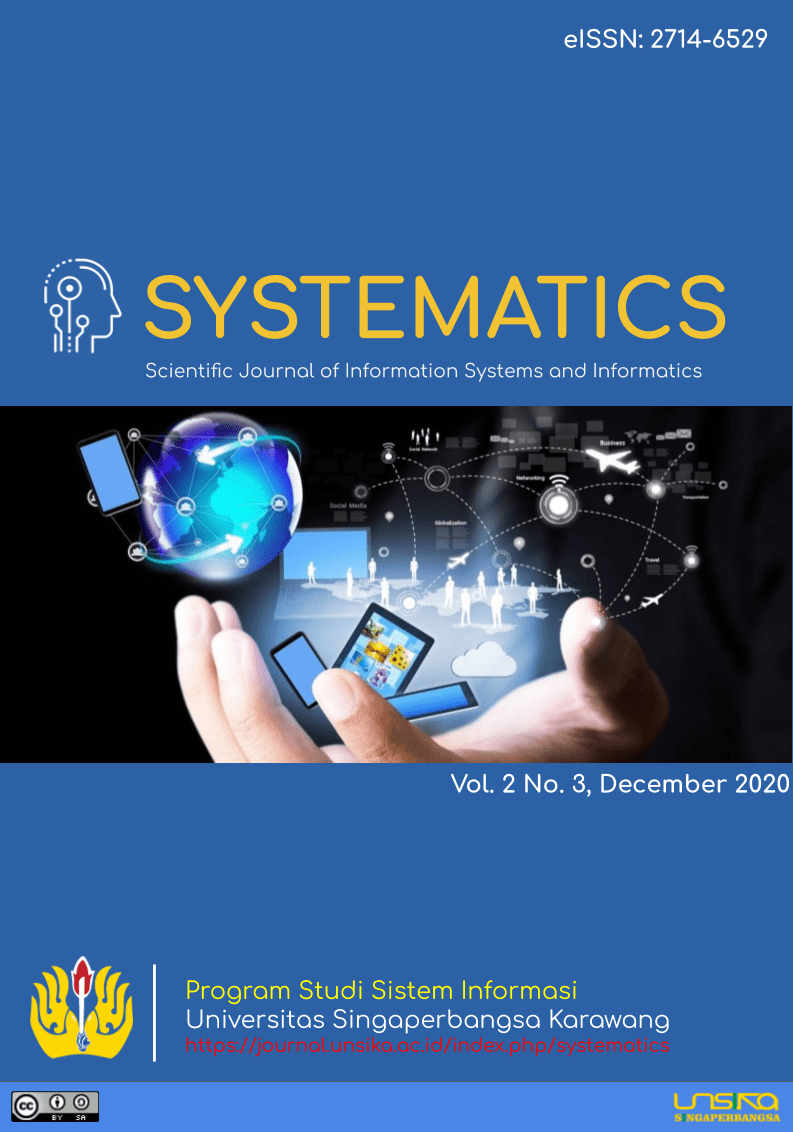Application of UAT (User Acceptance Test) Evaluation Model in Minggon E-Meeting Software Development
Abstract
The Sunday e-meeting application is an android application for controlling the results of a meeting which is an official face-to-face agenda activity carried out by two or more people with the aim of discussing a problem, finding a way out and making decisions in order to achieve individual or organizational goals. E-meeting is one solution to the problems contained in manual meetings. However, the system that has been built has not yet been evaluated so that the e-meeting system is not yet known whether it can be an effective and efficient system. The method used in the evaluation of this system uses the UAT (User Acceptance Test). The results of the evaluation of the system were different percentages, first in terms of design 45% of respondents answered that they did not agree with the appearance of the e-meeting system, then in terms of convenience 79.56% of respondents answered agreed with the use of the e-meeting system. facilitate the process of scheduling and setting the meeting time, and in terms of efficiency 85.47% of respondents answered that they strongly agree that this system will speed up the response of citizens to find out the schedule of meetings and meeting activities can be recapitulated automatically. So it can be concluded that the e-meeting system is acceptable and has good convenience, design and efficiency.
Downloads
Downloads
Published
How to Cite
Issue
Section
License
Copyright (c) 2021 SYSTEMATICS

This work is licensed under a Creative Commons Attribution-ShareAlike 4.0 International License.
Authors who publish with this journal agree to the following terms:
- Authors retain copyright and grant the journal right of first publication with the work simultaneously licensed under a Creative Commons Attribution-ShareAlike 4.0 International License. that allows others to share the work with an acknowledgement of the work's authorship and initial publication in this journal.
- Authors are able to enter into separate, additional contractual arrangements for the non-exclusive distribution of the journal's published version of the work (e.g., post it to an institutional repository or publish it in a book), with an acknowledgement of its initial publication in this journal.
- Authors are permitted and encouraged to post their work online (e.g., in institutional repositories or on their website) prior to and during the submission process, as it can lead to productive exchanges, as well as earlier and greater citation of published work (See The Effect of Open Access).







